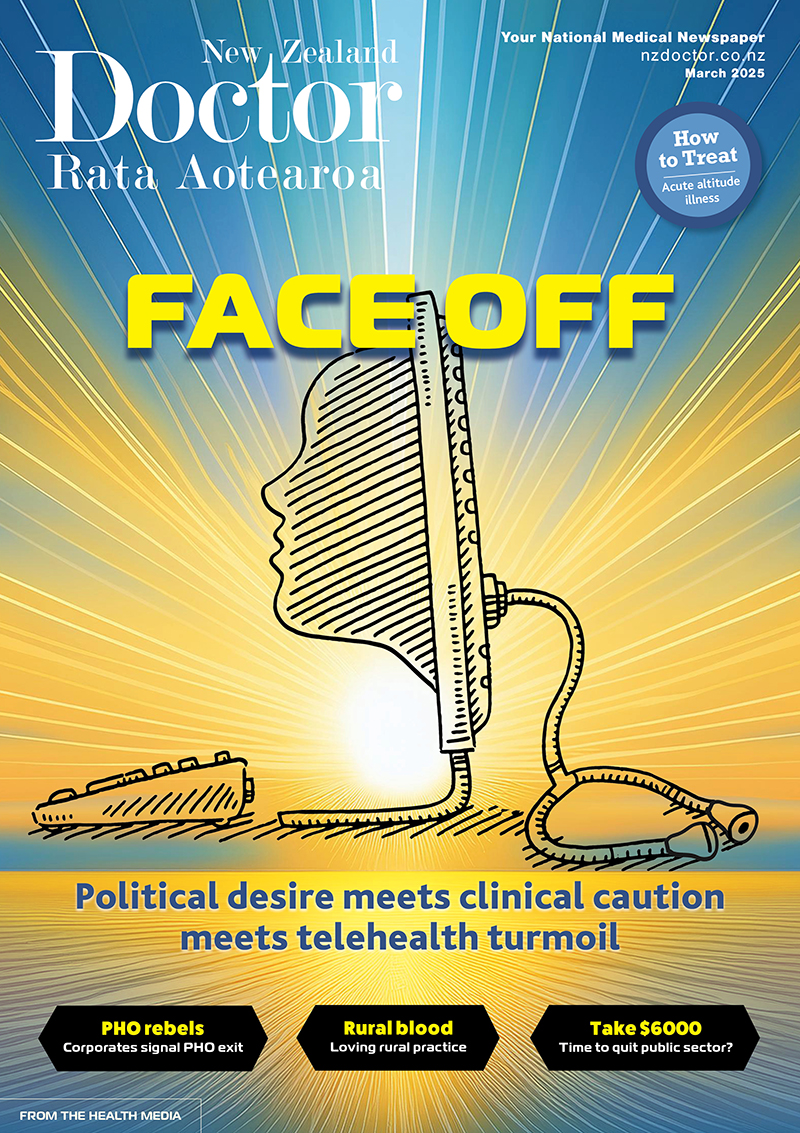Many people travel to high-altitude destinations, meaning clinicians are often faced with questions about how to prevent and treat altitude illness. Update your knowledge with this New Zealand Society of Travel Medicine summary of updated evidence-based guidelines with comments by senior lecturer Jenny Visser – it outlines the best prophylactic regimens, diagnostic approaches and treatment protocols for acute altitude illness
Waikato DHB releases independent review into its SmartHealth online doctor service
Waikato DHB releases independent review into its SmartHealth online doctor service

The Waikato DHB has released an independent report it commissioned into its online health system SmartHealth, which shows the DHB was justified in not renewing its contract last month with provider HealthTap.
The DHB stopped the SmartHealth service at the end of April following its two year trial after the service struggled to get people signed up to it and did not get the outcomes it was seeking.
SmartHealth included a free out of hours online doctor service plus online outpatient consultations with a hospital specialist, both provided on patients’ mobile phones and smart devices through HealthTap.
The report, by EY, says that while HealthTap itself performed well where it met a particular clinical need and many people who used it were very positive about the experience, there were a number of problems with the rollout of the service:
- Clinicians were not sufficiently engaged.
- There was no implementation plan setting a clear direction to monitor progress against.
- The US HealthTap product was a poor fit in the NZ public healthcare context.
- There were several technological issues early on.
- There was no interoperability with existing clinical systems.
- There was no collaboration with other DHBs in the region or primary care.
- The ‘big bang’ approach didn’t work and a phased introduction would have been better.
- The DHB was unrealistic about the timeline, uptake from the public and the impact on the organisation.
Interim chief executive Derek Wright, said: “Clearly there were failings in how we rolled out this system and I will ensure the organisation learns from these. The report shows that we introduced a new system too quickly, without proper collaboration with staff, the community and other providers and the organisation was not ready for this huge change.”
However he said the report showed that virtual care is still an important strategic direction for health organisations in New Zealand.
Acting chair Sally Webb said: “The Board is committed to using innovative ways of providing healthcare because we have a large rural and remote population who struggle to get access to health services.”
- The report recommends that for future virtual care services, the DHB:
- co-operates more fully with the other Midland region DHBs.
- collaborates with primary care to get the most appropriate care for their patient population.
- engages clinicians to help develop the strategy and implementation.
Mr Wright said: “We should have involved our clinicians early on to identify the need, rather than buy a service then work out what we were going to do with it. And we needed to have introduced this as a pilot in targeted areas so we could fine tune the system and introduce it gradually, rather than try and get all our services signed up at once.”
Mr Wright said the DHB’s future virtual heath approach will be part of the ten year Health Systems Plan for the organisation. The Office of the Auditor General is also investigating the HealthTap procurement process.
“We will not rush to replace HealthTap. Hospital clinicians will continue to use our current Telehealth and expand the Cisco Jabber video conferencing system which they are using now, to prevent people travelling to Waikato Hospital unnecessarily.”



